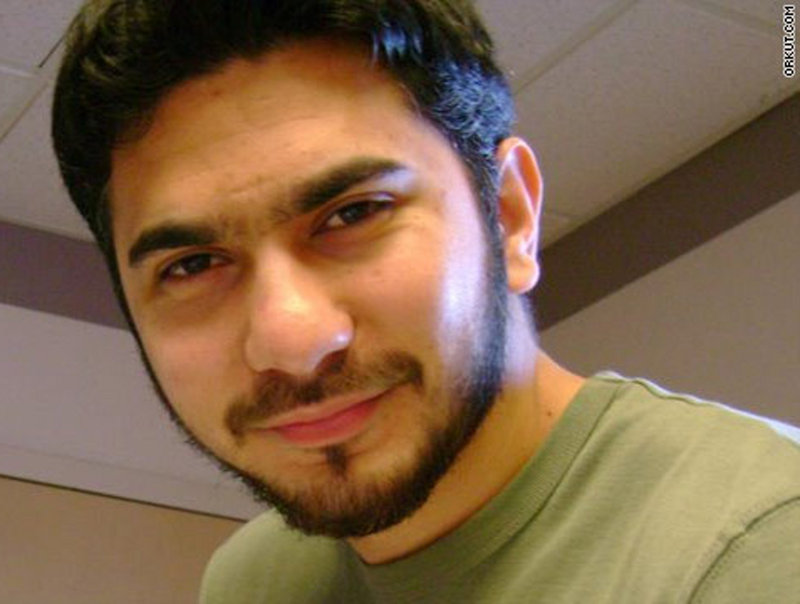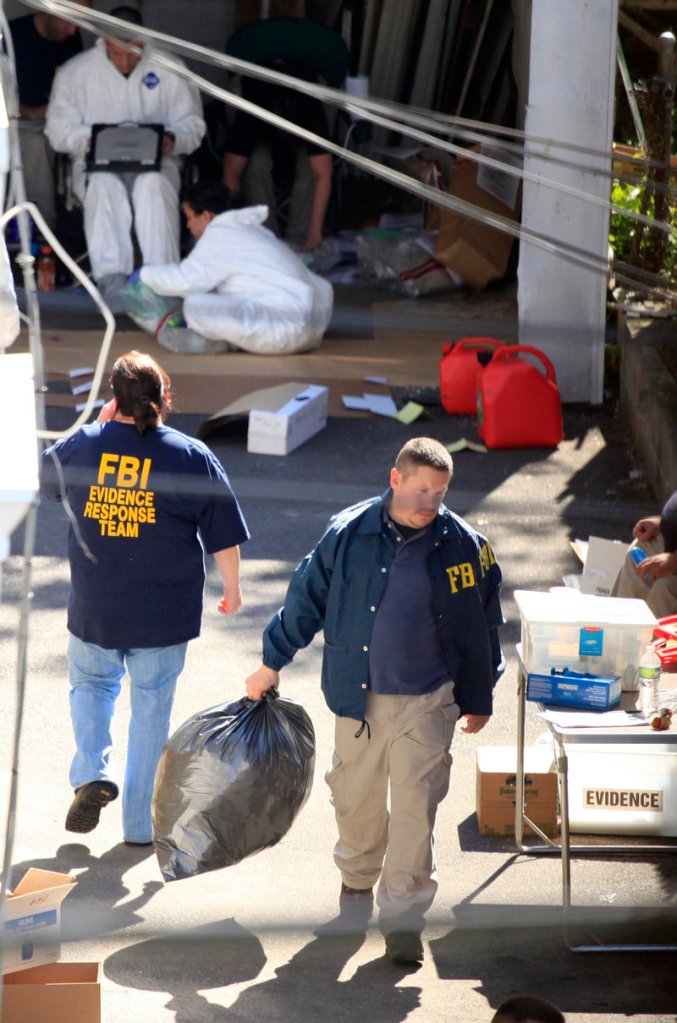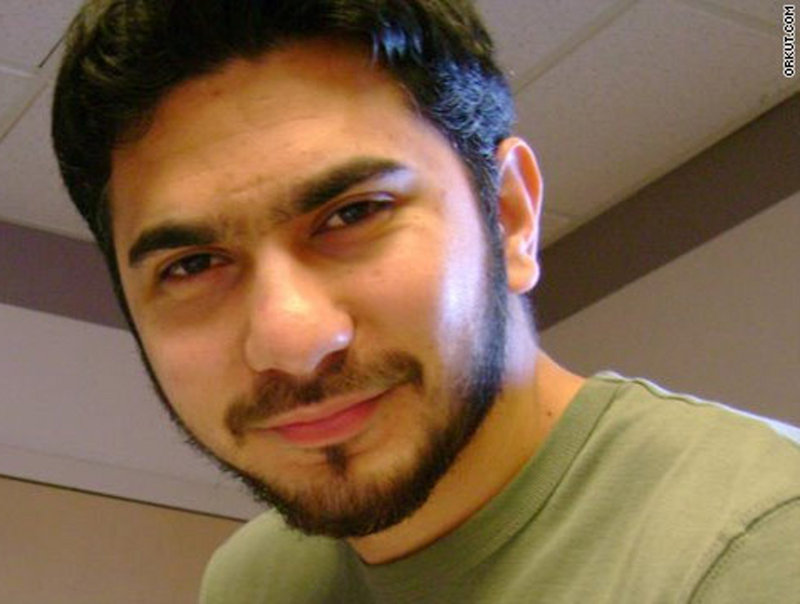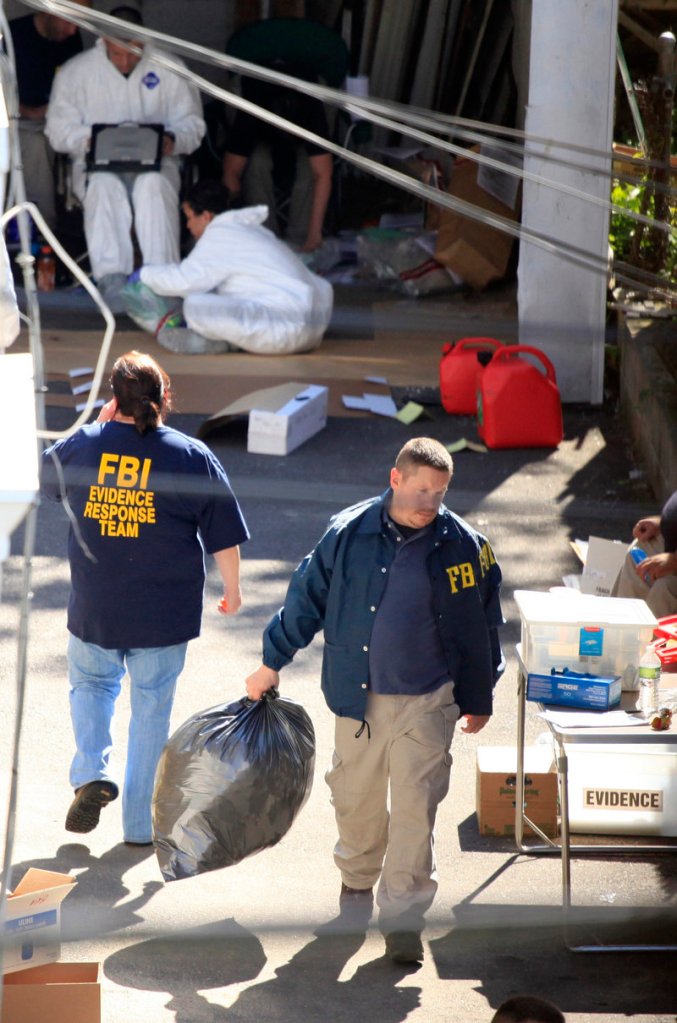Federal investigators focused Tuesday on the possible involvement of the Pakistani Taliban in the failed Times Square bombing after they pulled a suspect off an airplane as he headed to his native Pakistan, according to court documents and law enforcement sources.
Faisal Shahzad, a 30-year-old U.S. citizen arrested late Monday at John F. Kennedy International Airport, admitted his involvement in the plot, authorities said, and told FBI agents he received bomb-making training in a region of Pakistan known as a militant hotbed. Shahzad, who became a naturalized citizen last year, is from a military family in Pakistan, where he spent five months before returning in February to his home in a, quiet neighborhood of Shelton, Conn.
His reported confession, combined with a series of phone calls he received from Pakistan the day he bought the Nissan Pathfinder used in the attempted bombing, has led investigators to zero in on the Pakistani Taliban connection as “a leading theory,” a federal law enforcement official said.
“It’s a leading line of inquiry,” said the official, who spoke on the condition of anonymity because the international probe is in its early stages. “There are only a few organizations in Pakistan that could provide training, and the Pakistani Taliban is one that has an ax to grind with us.”
Pakistani Taliban claims of responsibility for Saturday night’s attempt, which investigators had played down, are being re-evaluated, the official said. Al-Qaida involvement “is a leap at this point,” the official said.
The focus on a group that had been considered uninterested in launching attacks outside Pakistan or Afghanistan showed the gravity of what authorities characterized as a potentially deadly strike against the U.S., albeit with a simple homemade device that failed to detonate.
Even as officials praised the rapid law enforcement response, the incident resurrected the controversy over the Obama administration’s handling of the attempted bombing of a Detroit-bound airliner on Christmas Day. Critics said the suspect in that case should have been prosecuted in a military, rather than civilian, court.
Speaking at a news conference at which the government unveiled five felony counts against Shahzad, Attorney General Eric Holder said, “It is clear that this was a terrorist plot aimed at murdering Americans in one of the busiest places in our country.” Shahzad was charged with attempting to detonate the sport-utility vehicle that was set ablaze on a tourist-crowded block in midtown Manhattan, and with trying to kill bystanders and destroy property.
Multiple U.S. law enforcement officials said Shahzad had attracted no significant law enforcement attention before the attempted bombing Saturday night. “He was not on the radar,” one official said.
Also triggering debate was the decision to read Shahzad his Miranda rights against self-incrimination. The Miranda issue rose to prominence after the Nigerian suspect in the Christmas Day attack, Omar Farouk Abdulmutallab, stopped cooperating with authorities after being read his rights. Some Republicans, including Sen. John McCain, R-Ariz., said Shahzad should not have been afforded that constitutional right “until we find out what it’s all about.”
But administration officials said Shahzad, who like Abdulmutallab was initially questioned under a “public safety exception” to the Miranda rule, continued to cooperate even after his rights were read to him. They also noted that Shahzad is a U.S. citizen and must be tried in civilian, not military, court.
U.S. investigators located Shahzad after a two-day investigation combining old-fashioned shoe-leather detective work, sophisticated searches through telephone and electronic records, and the latest linkups between federal immigration, travel and border databases.
Sunday night, authorities had identified Shahzad as “someone we wanted to talk to,” said FBI Deputy Director John S. Pistole.
Tracing the origins of the Pathfinder was a crucial part of the probe. The car’s vehicle identification number had been removed from a dashboard plate. But authorities were able to find the seller by using a decal on the tailgate to trace the car to a Connecticut used-car dealer, who early Sunday gave them sales records on two cars matching the Pathfinder’s description.
Authorities then found the vehicle’s registered owner in Connecticut. Police officials said that was a major break in the case. Another key step was finding an e-mail from Shahzad to the car’s seller. Although Shahzad used a fake name, he included a number from a disposable cellphone, which investigators used to determine his identity.
The probe also extended to Pakistan, where officials said FBI agents were expected to push their Pakistani counterparts for access to intelligence about the Pakistani Taliban and its possible involvement in the plot. Pakistani officials pledged cooperation.
A Pakistani intelligence official said Tuesday that authorities had arrested at least two people in the southern port city of Karachi in connection with the Times Square plot. But a U.S. law enforcement official said the arrest was “not at our behest.”
Send questions/comments to the editors.






Success. Please wait for the page to reload. If the page does not reload within 5 seconds, please refresh the page.
Enter your email and password to access comments.
Hi, to comment on stories you must . This profile is in addition to your subscription and website login.
Already have a commenting profile? .
Invalid username/password.
Please check your email to confirm and complete your registration.
Only subscribers are eligible to post comments. Please subscribe or login first for digital access. Here’s why.
Use the form below to reset your password. When you've submitted your account email, we will send an email with a reset code.